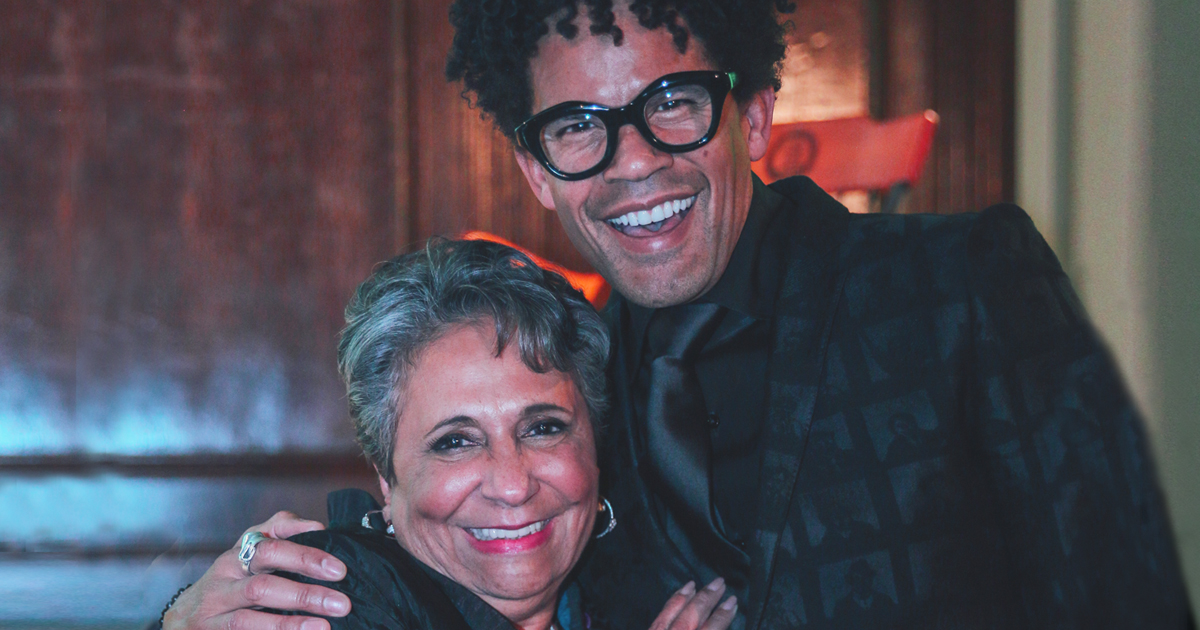Entrepreneurship in Her Family Dates Back to 1844. Today, Cathy Hughes Runs the Largest Black-Owned Broadcast Company in the Nation

“Our future generations will be better prepared because of schools like Babson,” said Cathy Hughes, founder and chairperson of Urban One, addressing the crowd at Babson’s 2019 Black Affinity Network Conference. “We try to prepare our children by doing what we think is right. We send them to college to get a ‘good job.’ These young people now, they go to places like Babson so that this ‘good job’ ultimately means working for themselves.”
Now in its 21st year, the Black Affinity Network Conference is dedicated to strengthening the leadership and legacy between black alumni and current students, and providing networking and professional development opportunities for participants. It also is a celebration of diversity, inclusion, and the achievements of individuals within the Babson College community. At the event, Babson students and alumni presented two revered community members with Affinity Awards. Jeffrey Meade ’98, managing director of Tara Wilson Agency, won the Alumni Award, and Jeannette F. Angles, Babson’s ARM-E risk manager, won the staff award.
One Woman, One Vision, One Company
This year’s theme was Blacks in Entertainment, recognizing the unique contributions and achievements of black professionals from across music, film, radio, television, and more. Hughes, who joined this year’s event as winner of the Black Affinity Network’s Pioneer Award, leads Urban One—the largest African-American-owned and -operated broadcast company in the United States.
“Cathy Hughes was the first African-American woman to chair a publicly held corporation. Let that sink in,” said Aaron Walton ’83, founding partner of Walton Isaacson, as he introduced Hughes to the audience. He went on to outline her career—one he referred to as “full of firsts and innovative breakthroughs.”
Hughes comes from a long line of family entrepreneurship, as she’d later describe in detail during the evening’s fireside chat led by her friend Dyana Williams, founder of the International Association of African American Music.
Prior Foster, Hughes’ great-great grandfather, opened one of the nation’s first integrated schools in 1844. Seeing education as a business, as Hughes puts it, was continued by Foster’s grandson and Hughes’ grandfather, Dr. Laurence Jones, founder of the well-known Piney Woods School in Mississippi in 1909. Piney Woods is now the largest of only four African-American boarding schools left in the country.
“My family has been in education for several centuries, but in the entrepreneurial sense of the word,” said Hughes. “One of the problems we have had in the African-American community is that education is often not run as a business—a necessity if you’re striving for longevity and success. I am so proud to say that since 1909, Piney Woods has educated children of need who were particularly bright but lacked opportunity.”
Now with her son and business partner, Alfred Liggins, III, Hughes has grown what once was Radio One into a multimedia company now known as Urban One, a market leader with more than 60 stations across the country.
Urban One will turn 40 years old next year, and, as Williams put it, didn’t get to this point without hard times and struggle. Hughes has, at times, had to live in, clean, and maintain her own radio station. She’s gone on the air when she couldn’t afford to hire anyone. She’s always been willing to do, and has done, everything she could to make her business what it is today.
Her philanthropic work also is an unsung highlight of her life. Above and beyond being a loyal supporter of Piney Woods, “she is a champion for the hungry and homeless, a mentor to countless women, and an advocate dedicated to empowering diverse communities,” closed Walton.
“I have to say this to the entrepreneurs in the room,” concluded Hughes. “I’ll share with you the best advice I ever received from the wonderful late Herb Wilkins: When someone asks you how your business is doing, it doesn’t matter if it’s at its worst. You stay positive. Say things like ‘the business is improving . . . It’s looking a lot better today than it was yesterday.’ When you say this out loud, you start to believe it. When you believe things are improving, when you stop complaining, that’s when great things happen.”
Posted in Community
